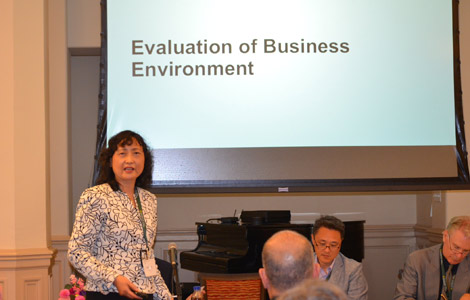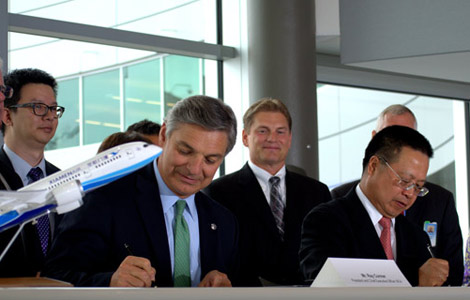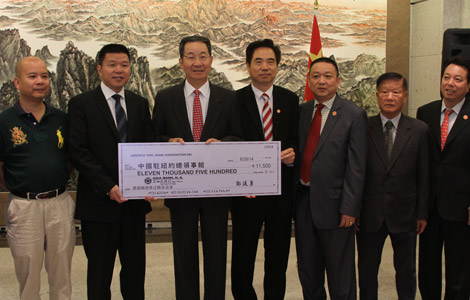NPC decision a landmark in HK democratic development
Updated: 2014-08-31 22:47
(Xinhua)
|
||||||||
BEIJING - The decision adopted by China's legislature on Hong Kong's electoral reform is a landmark in the region's democratic development and will bear no disturbance in its implementation.
The decision granted universal suffrage in the selection of the Hong Kong Special Administrative Region (HKSAR)'s chief executive on the basis of nomination by a "broadly representative" committee.
The decision abides by the Constitution and the Hong Kong Basic Law. It responds to mainstream opinions in Hong Kong society and complies with the region's realities and common wishes of the public.
Once specific methods for the universal suffrage are passed by the Hong Kong legislative council and finally approved by the National People's Congress (NPC) Standing Committee, more than 5 million eligible electors in Hong Kong will for the first time enjoy the right to directly vote for their chief executive.
The step is a sharp contrast to the past 156 years when there was no democracy for Hong Kong people under British rule. It was after Hong Kong's return to China in 1997 and under the policy of "one country, two systems" that the region achieved prosperity, stability and democracy.
Under the "comprehensive jurisdiction" of the central government, Hong Kong enjoys a high degree of autonomy.
Implementing universal suffrage for the selection of the chief executive represents a significant change in the political structure of Hong Kong.
The NPC's decision displayed that the central authorities are sincere about and responsible for safeguarding the region's long-term interests.
Since the prosperity and stability of Hong Kong, and the sovereignty, security and development interests of the country are at stake, there is a need to proceed in a prudent and steady manner.
Despite the central government's efforts, however, some political groups and individuals do not respect China's jurisdiction over Hong Kong, citing so-called "international standards" to demand a referendum and public nomination of candidates.
They even called on residents to protest so as to press the central authorities to accept their views.
Some groups even colluded with external forces in an attempt to interfere with the region's administration, trying to lead Hong Kong to a road deviating from the track of "one country, two systems."
Such behavior risks seriously damaging Hong Kong's stability and economic development.
Since the decision has been made, the central government will not compromise on core questions that concern Hong Kong's future and national sovereignty and security.
Should there be any step backwards in achieving the goal of universal suffrage as scheduled, the organizers of such actions must shoulder all responsibility for blocking democratic development.
China has "comprehensive jurisdiction" over the HKSAR and will always be involved in the region's affairs.
The central government will firmly support the current HKSAR government to fulfill its duties of administering the region and conducting the next round of consultations so that the specific method for universal suffrage can be endorsed with a two-third majority at the legislative council.
Hong Kong residents are also expected to unite in achieving the goal of universal suffrage to elect a chief executive who loves the country and loves Hong Kong.
Most Viewed
Editor's Picks

|

|

|

|

|

|
Today's Top News
US launches fresh air strikes on IS rebels
NPC decision a landmark in HK democratic development
Exhibition on China-US WWII collaboration unveiled
Google building delivery drones
US, China plan followup to Sunnylands summit
US urged to stop recon
Bay Area takes lessons from Napa quake
Microsoft CEO 'en route to Beijing'
US Weekly

|

|















